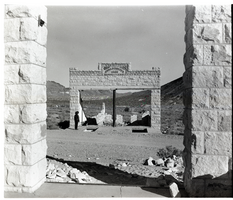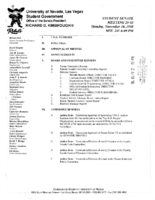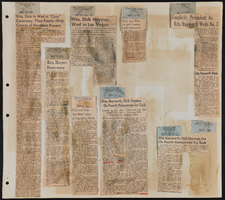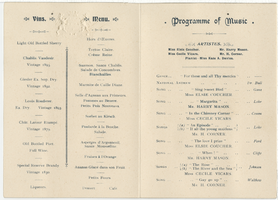Search the Special Collections and Archives Portal
Search Results

Cindy Baca oral history interview: transcript
Date
Archival Collection
Description
Oral history interview with Cindy Baca conducted by Barbara Tabach on May 22, 2019 for the Remembering 1 October Oral History Project. Cindy Baca, born and raised in Las Vegas, talks about her family and occupation as a librarian at Escobedo Middle School. Cindy's twin daughters were present and injured during the Route 91 Festival and October 1 shooting. She describes their experiences and the Random Acts of Kindness project she piloted at her school after the incident.
Text

Film transparency of the ruins of the H. D. and L. D. Porter Brothers Store, Rhyolite, Nevada, November 25, 1948
Date
Archival Collection
Description
Image

Meeting minutes for Consolidated Student Senate University of Nevada, Las Vegas, November 16, 1998
Date
Archival Collection
Description
Text
Basic Magnesium, Inc.
Basic Magnesium, Inc. (BMI) formed in June 1941 as a joint venture between Basic Refractories, Inc. of Cleveland, Ohio and Magnesium Elektron, Limited of England. Basic Refractories, Inc. owned mining claims in Gabbs Valley, Nye County, Nevada, which produced the magnesite and brucite needed to produce magnesium metal. Magnesium Elektron, Limited owned the patent for the electrolytic process of extracting metallic magnesium from these minerals.
Corporate Body

Film strip of individuals or Hoover Dam construction, image 003: photographic print
Date
Archival Collection
Description
Image

Film strip of individuals or Hoover Dam construction, image 005: photographic print
Date
Archival Collection
Description
Image

Film strip of individuals or Hoover Dam construction, image 008: photographic print
Date
Archival Collection
Description
Image


